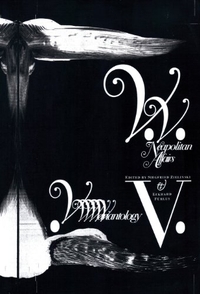

Variantology V. Neapolitan Affairs. On Deep Time Relations of Arts, Sciences and Technologies
Verlag der Buchhandlung Walther König, Köln 2011
Herausgegeben von Siegfried Zielinski & Eckhard Fürlus, Mitarbeit Daniel Irrgang. Naples: Although it has a long history, many consider the city does not have a future its present-day state is seen as too ugly. The Biblioteca Nazionale di Napoli is one of Europe's most beautiful and decadent collections of books and manuscripts. There the Variantologists met for their last congress (for the time being) and attempted Vesuvian thinking, initiated by the vulcanologist and Vesuvius expert Giovanni P. Ricciardi's introduction. Their discussions traversed the deep time of the city and explored its media, philosophers, scientists, and scholars. Those who engaged with Neapolitan affairs in Naples, and whose contributions are published in this volume, were the art experts Hans Belting and John Berger, the artists Rosa Barba and Peter Blegvad, the papyrologist Luciano Canfora, the mathematician Chen Cheng-Yih, the physicist Otto E. Rössler, and the philosopher and artist Elisabeth von Samsonow. Early machine poetry texts by the experimental poet Nanni Balestrini are published here for the first time. The artistic design of Variantology Volume 5 was created by the legendary Brothers Quay.
List of authors: Nanni Balestrini, Rosa Barba, Hans Belting, John Berger, Peter Blegvad, Arianna Borrelli, Luciano Canfora, Chen Cheng-Yih, FM Einheit, Vilém Flusser, Eckhard Fürlus, Yasmin Haskell, Sebastian Klotz, David Link, Anthony Moore, Miklós Peternak, Quay Brothers, Giovanni P. Ricciardi, Nils Röller, Otto E. Rössler, Elisabeth von Samsonow, Wilhelm Schmidt-Biggemann, Amnon Shiloah, Amador Vega, Siegfried Zielinski.